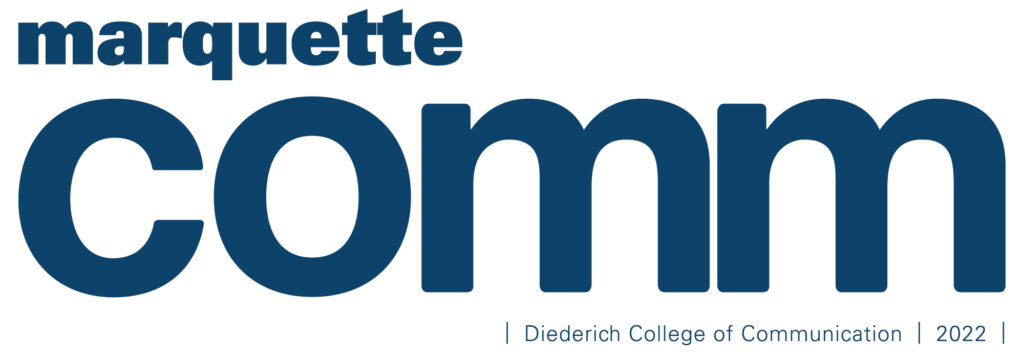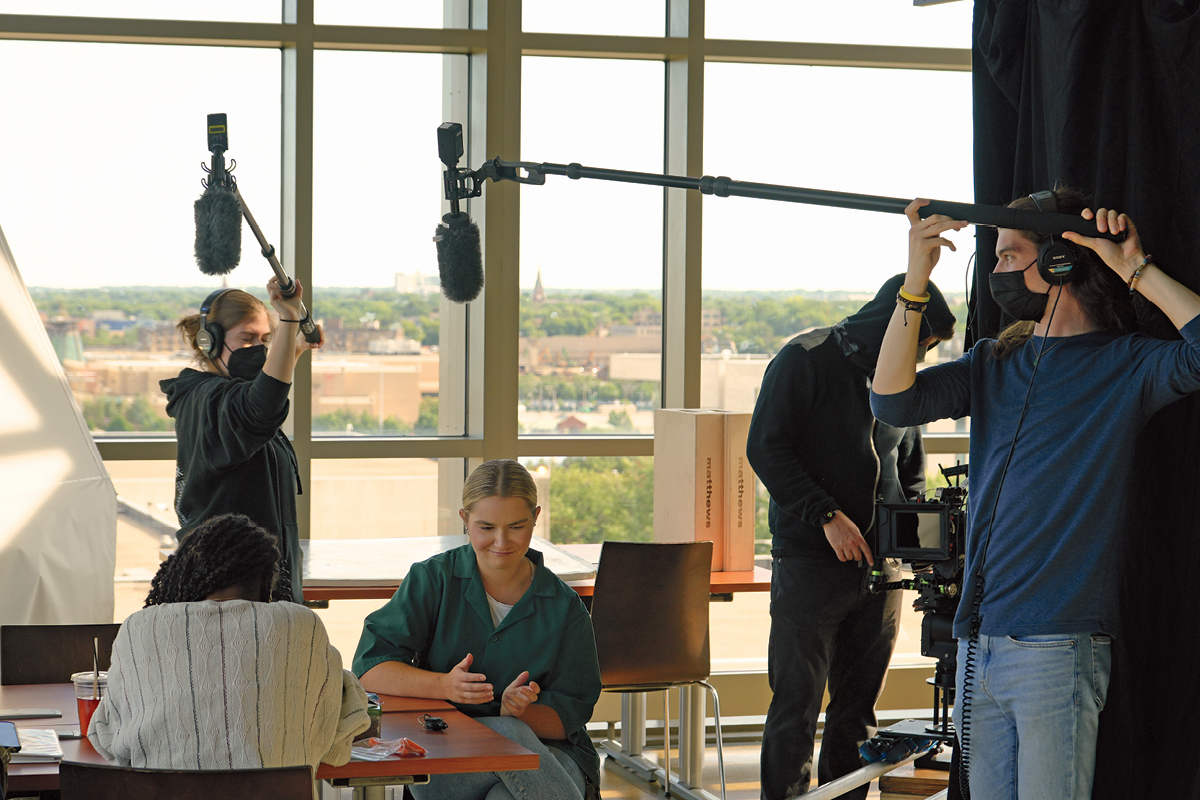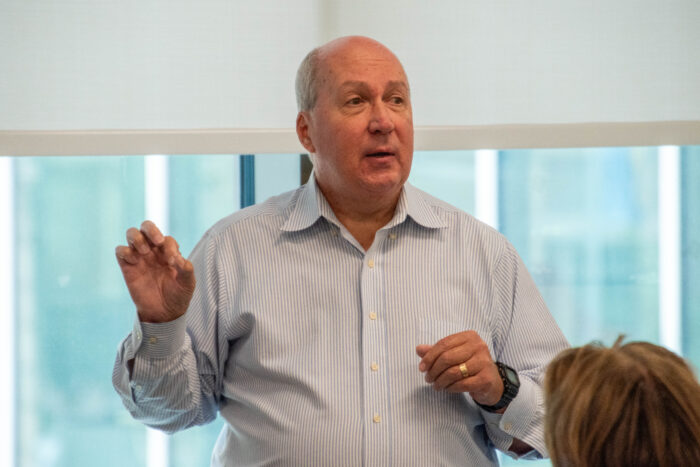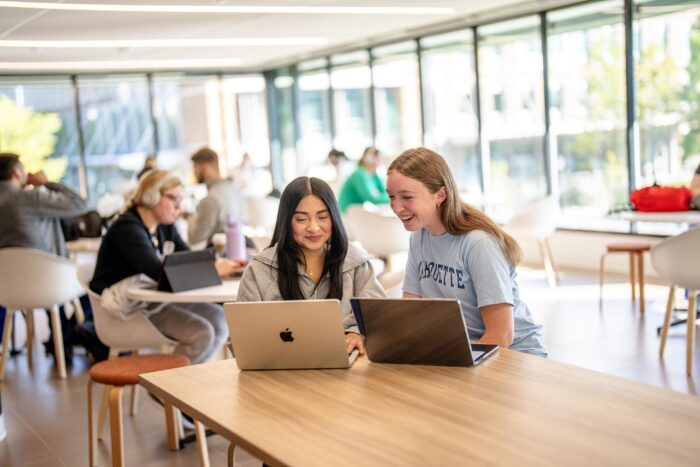Feature film project gives students a close encounter with the filmmaking process.
For 20 days in June, Engineering Hall, Wisconsin Avenue and other Marquette campus spots became filming locales for a feature-length independent film described as Good Will Hunting meets The Bourne Identity.
The screenplay for the film Diffraction, written by Kristin Holodak, associate professor of digital media and performing arts, tells the tale of a young Army veteran who is hired as a janitor on a university campus and discovers a researcher making deadly secret weapons. The vet must stop her before people die. The film, now in postproduction, is acting as a master class for dozens of Marquette students majoring in digital media, theatre and advertising who are working under the guidance of established film professionals and faculty.
Most college-level digital media programs focus on “shorts,” which typically run 15 minutes or less, Holodak explains. But she chose to engage students in a bigger, more ambitious project: a feature-length action thriller. This has meant long, intense days for the cast and crew, but allows students to develop skills they can apply to a host of digital media projects. “If they can do this,” Holodak says, “they can do anything.”
“It’s a dream come true to have this kind of project to work on, especially in college,” says Trevor Tosto, a digital media major who served as first assistant camera during filming in June. He worked closely with a professional cinematographer and appreciated the chance to observe Holodak in her writer-director role. “Her passion for the project is really motivating,” Tosto says.

Holodak wrote the script in 2021 and then recruited students to participate in preproduction work. This included casting theatre students and professional actors for roles in the film, scouting locations and preparing costumes before filming began. Students in Marquette’s Editing Techniques course will edit the film this fall. Those in the Sound Design course will tackle the sound in spring 2023. And advertising students will create a marketing campaign for the film as part of their senior capstone projects. “If things go well,” Holodak says, “in the summer of 2023, we’ll have a friends and family screening on campus for everybody who helped.” Screenings at film festivals are possible too.
The film is funded by a grant from the Diederich College, a Marquette Summer Faculty Fellowship and an award from the Institute for Women’s Leadership on campus. Holodak’s own production company, Heron Media, is also donating resources to complete the film.
Holodak sees Diffraction as a pilot project, a way to test out the process of making feature-length films at Marquette on a regular basis, and she hopes to attract the funding to make this happen. In the meantime, she is optimistic about the possibilities for Diffraction.
“Our students are great,” Holodak says. “They’re so enthusiastic and so keen. They’re up for it.”




